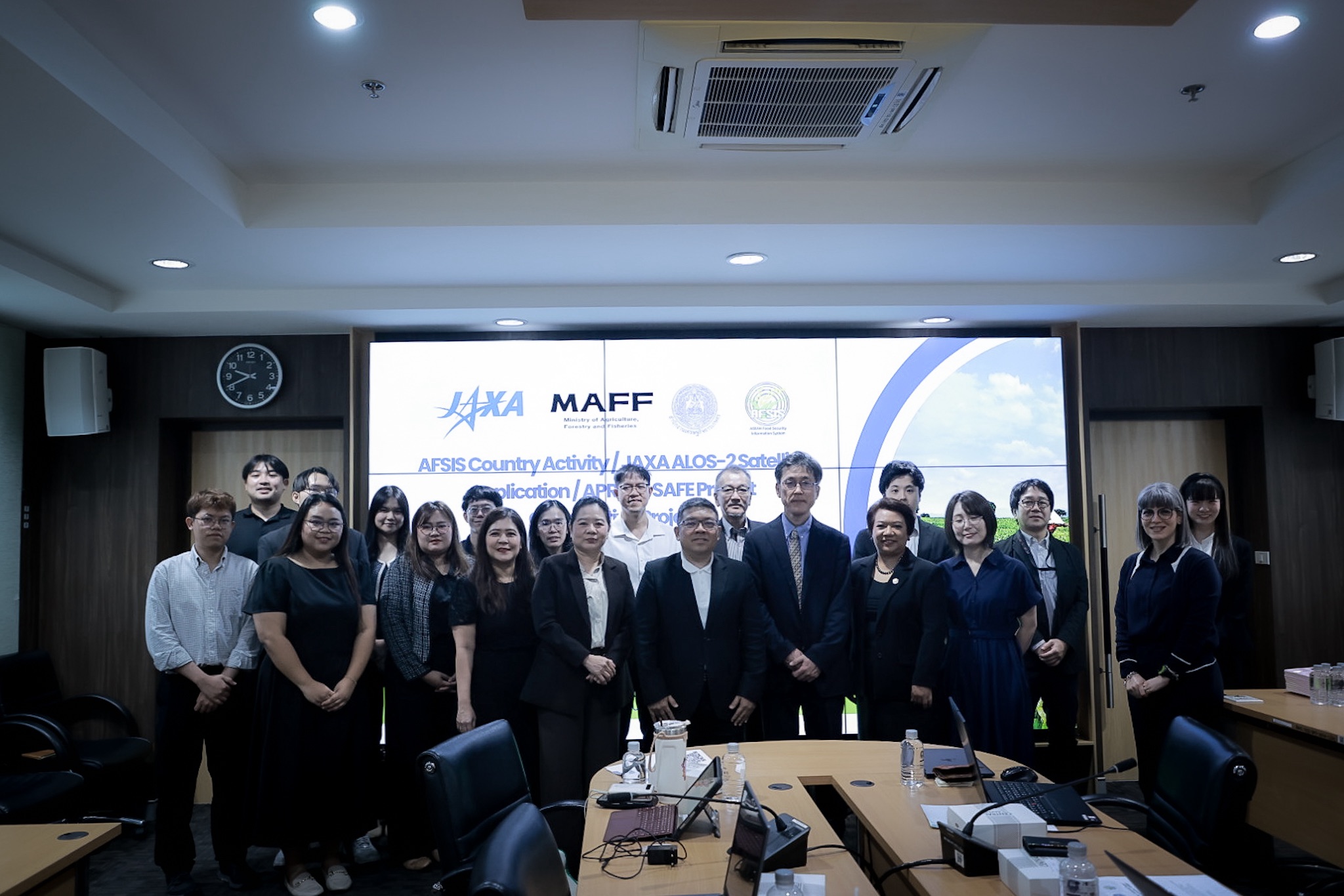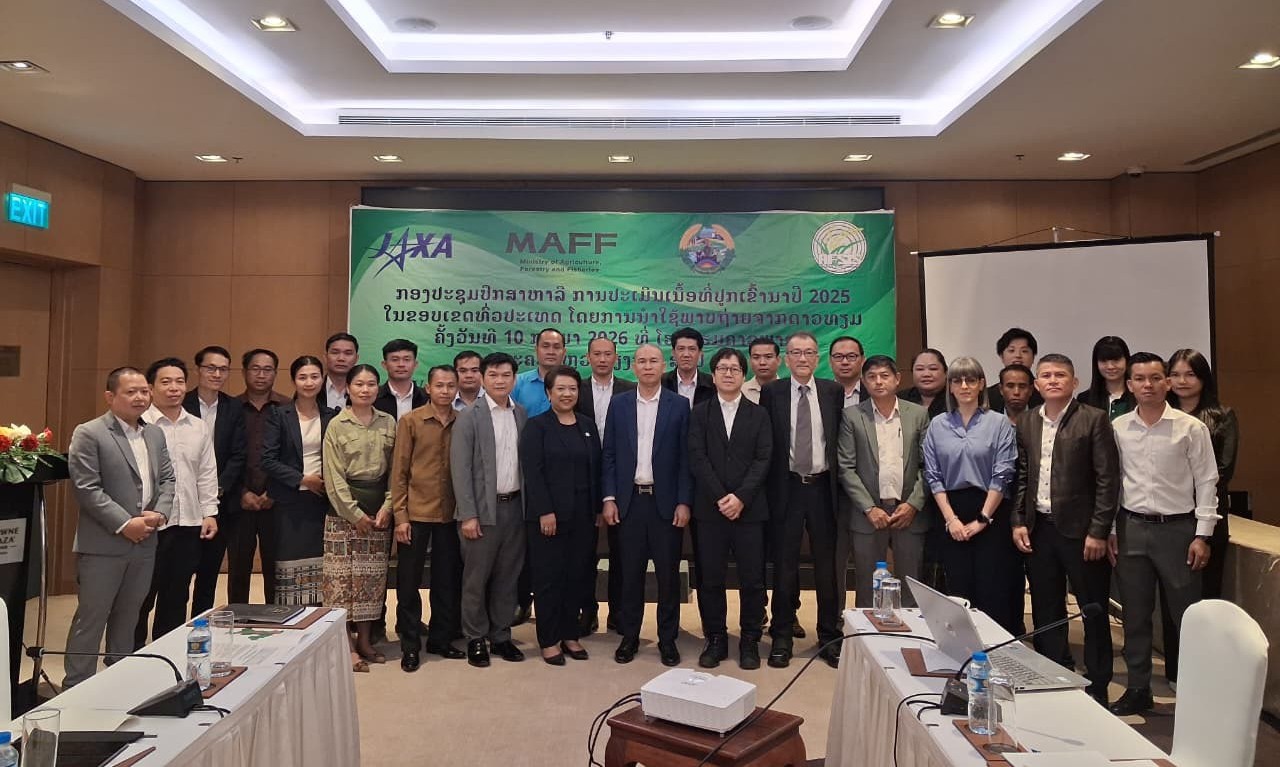

Report and Disseminate the Information Regarding
the Serious Disaster
Eruption of Mount Ile Lewotolok, Indonesia
November 2020
Source: Ministry of Agriculture, Indonesia
On November 29, 2020, there was an eruption of Mount Ile Lewotolok or Mount Ile Ape, in Lembata District at East Nusa Tenggara Province in Indonesia. The affected areas which are 17 villages in Ile Ape Sub-District and 9 villages in East Ile Ape Sub-District were expected to be damaged from this eruption. More than 2,700 people from these 26 villages were evacuated to the safe zone.
The impact of the eruption has not affected the whole picture of Indonesia crop production because Ile Ape Sub-District and East Ile Ape Sub-District are not Indonesian main crop producer for rice and maize. Regarding the eruption, 18 hectares or approximately 34.27 tonnes of upland rice and 5 hectares or approximately 9.61 tonnes of maize in Ile Ape Sub-District were damaged. In addition, 15 hectares or approximately 28.56 tonnes of the upland rice and 2 hectares or approximately 3.84 tonnes of the maize in East Ile Ape Sub-District were also damaged. This total damaged area is not much compared to the national crop production area. Therefore, the total damaged area from the eruption of Mount Ile Lewotolok was not had a significant impact on national food supply as a whole in Indonesia.
In this regard, Indonesia government mainly provided assistances in term of food, medicine and shelter posts for the refugees. Moreover, there were food assistance from districts nearby to support two damaged sub-districts. While there is still no help from other countries’ governments. However, the future effect is many plantation/lands will be abandoned or late in planting, which will cause a decrease in productivity and impact on food security in these two districts. The Indonesian local government and volunteers will help farmers to re-cultivate crops.
Word File: Eruption of Mt Ile Lewotolok in Indonesia

On 12-13 February 2026, the AFSIS Secretariat, in collaboration with the Japan Aerospace Exploration Agency (JAXA), the Remote Sensing Technology Center of Japan (RESTEC), Ministry of Agriculture, Forestry and Fisheries (MAFF) Japan and the Office of Agricultural Economics (OAE), Ministry of Agriculture Cooperatives (MOAC), conducted a workshop conducted a workshop The Promoting Rice Planted Area and Production Estimation Using INAHOR and Space-based Technologies in Thailand at the Meeting Room 2, Innovation Building, 3rd FL, Office of Agricultural Economics (OAE)

The In-Country Workshop on Promoting Rice Planted Area and Production Estimation Using Space-based Technologies in Lao PDR was jointly organized by AFSIS Secretariat, JAXA, MAFF Japan, and MAE Lao PDR under the AFSIS-GIS and SAFE projects. The event was held in Vientiane with hands-on training on 9 February 2026 and a workshop on 10 February 2026.
.jpg)
On 13–15 January 2026, the Office of Agricultural Economics (OAE), Thailand, in collaboration with the Ministry of Agriculture, Forestry and Fisheries (MAFF), Japan, and the AFSIS Secretariat, conducted the 1st Meeting of Japan–Thailand Expert Dialogue on Agricultural Statistics. The meeting was held at the Office of Agricultural Economics and field survey activities in Chonburi Province.

On 3–4 December 2025, the ASEAN Food Security Information System (AFSIS) Secretariat participated in the ASEAN Plus Three Emergency Rice Reserve (APTERR) Table Top Exercise (TTX) held in Bandar Seri Begawan, Brunei Darussalam.